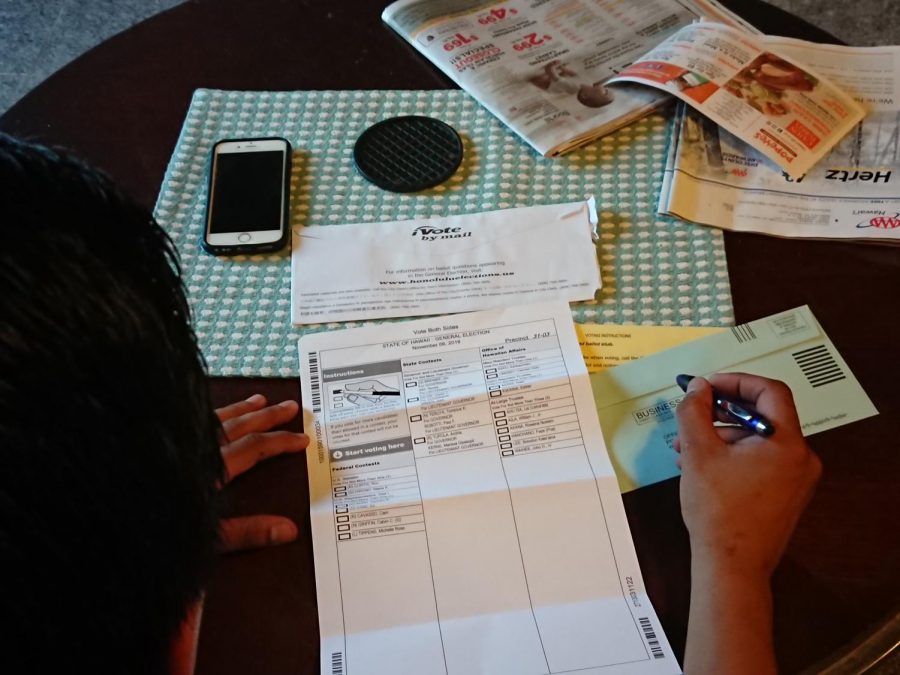College Students Are Unmotivated to Vote in Midterms
Librarian Val Coleman, who has been working at the Sullivan Family Library at Chaminade University of Honolulu for 30 years, always finds the time to vote.
“I have been voting since I’ve been 18,” Coleman, the 64-year-old woman said. “This is a big privilege for you to go out and vote.”
Coleman, like many older adults, understands the importance of voting. Having the right to say who gets to represent citizens in both local, state, and national levels are the democratic way. Still, with the midterm elections coming on Tuesday, Nov. 6, it seems many college students are entirely unaware of the candidates in the midterm election or even how to register to vote.
Michael Delicata, a sophomore at Chaminade, plans to vote but needs more time know which candidate he will vote for at the polls. The history major feels like registering to vote and then going to vote, too much work for what it’s worth.
“Feels like a hassle,” said Delicata, who is still unregistered to vote. “The lines, man.”
An article published in August on Hawaii News Now reported that Hawaii State officials have been trying to increase votes by encouraging same-day voter registration and even increased efforts for mail-in and absentee voting. Mail-in ballots allow voters to skip lines and have the ballet handed to the voter by a mailman. Still, Delicata said he would forget about it.
Paul Madamba, who attends the University of Hawaii, cares little about politics and believes the government is running fine. The third-year student admitted that he is behind in politics and is unmotivated to do the research.
“I’m just not interested,” Madamba said. “I like watching workout videos.”
Madamba blames politicians for failing to be active on social media enough and “being in his face” more. He wants to see posts on politics while he scrolls through Instagram.
The New York Times published an article on Oct. 18 that said after Trump’s popularity on social media and win in the 2016 presidential elections, both Democrats and Republicans have both been determined to increase interactions on social media. The same article said retweets or likes reflect little in amounting more votes at the polls. Political strategists disagree about the importance of social media popularity and see it more as one piece of a successful campaign.
Hawaii is known for having a low voter turnout, inferior to any other state in America, according to a Hawaii News Now article in August, The same report said the participation from 2016 to 2018 primary elections increased by 3.8 percent but was still down compared to 2010, 2012 and 2014 primary elections. On United States Election Project, the state of Hawaii 2018 primary election statewide final summary report stated statewide went to say that out of 741,007 total registered voters. Only a meager 38.6 percent made it to the polls.
Frantacia Mauigoa a second year Chaminade student would have been eligible to vote this year for the first time had she been able to. Mauigoa is ineligible to vote because she is from the U.S. territory America Samoa. Still, despite being unqualified to vote she has strong opinions as to why people should.
“The people we are voting for they impact us, the people,” The historical politics major Mauigoa said. “Their choices and what they vote on in Congress affects us if could vote my name would be on that list.”
Hawaii’s voter’s registration deadline was Oct. 10, but there are still ways anyone eligible can register and go vote. Same-day registration and voting begins Oct. 23 and ends Nov. 3.
The deadline to request an absentee ballot is Oct. 30, and the deadline to return the completed absentee ballot is Nov. 6.
